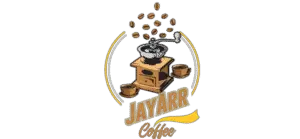A Reputation that Precedes It
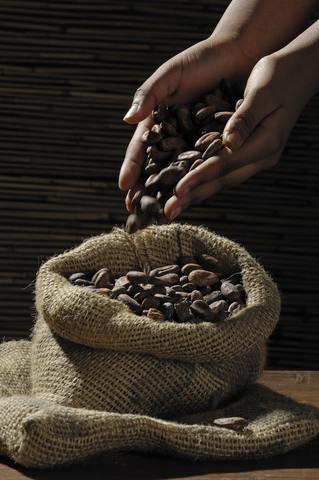
Jamaica Blue Mountain coffee. For those who have heard of this exquisite coffee, the first word that comes to mind might be “expensive”. The beans themselves must pass through a rigorous series of tests before they can be officially recognized and certified as authentic Blue Mountain coffee. Annually, the amount of Blue Mountain produced is quite low in comparison to the potential amount that could be produced and sold. Also, of the amount that is sold, a good chunk (80%) is exported to Japan, while the rest of the global market has to make due with the remaining 20%. Looking online, I see a 1 pound bag of certified Jamaica Blue Mountain coffee selling for $90. What is it about this coffee that is so special and warrants such a high price?
For your information, if you click on a product on Jayarrcoffee.com and decide to buy it, we may earn a small commission.Is Jamaica Blue Mountain Coffee Worth the Price?
While this question is necessarily a matter of personal preference (and whether you can afford it!), Jamaica Blue Mountain is like a particularly fine champagne, whiskey, or cheese- consumed on rare occasions as an experience and not as your everyday morning cup. While almost everyone universally agrees that Jamaica Blue Mountain produces a great cup of coffee, many are quite skeptical of the price it commands- finding Kona Coffee or a single-origin Papua New Guinea to offer just as much at a fraction of the price. If you are a coffee enthusiast, you should try it once and decide for yourself.
What are the origins of Jamaica Blue Mountain Coffee?
Coffee beans were introduced to Jamaica in 1728 by Sir Nicholas Lawes, who was serving as the governor of the island. From this time, coffee has been cultivated on the island. But not all the coffee produced in Jamaica is Blue Mountain coffee- to be certified True Blue Mountain coffee, the beans must come from a plantation located in Jamaica’s Blue Mountain range. This mountain range is not only Jamaica’s longest, but is also home to Jamaica’s highest point. Within the mountain range are various plantations that cultivate coffee crops on the ridge.
What is Required for Coffee Beans to Qualify as Jamaica Blue Mountain Coffee?
The plantations must be located within the parishes of St. Andrew, St. Thomas, St. Mary and Portland. Coffee grown along a mountainside- as opposed to on flat fields- is labor intensive and difficult, and this is another reason why Blue Mountain Coffee is so expensive. The mountains themselves host a unique environment that is conducive to producing very high quality coffee: high amounts of precipitation, lots of rainfall, and typically cool and misty. The soil of the mountains is also particularly rich and fertile, while allowing for thorough drainage. These factors contribute to a superb coffee bean.
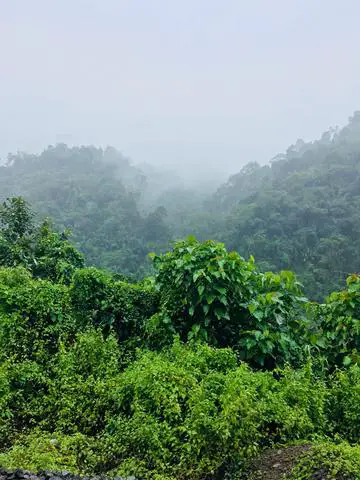
To recap, to qualify as Jamaica Blue Mountain, the beans not only must be grown on a near-vertical plantation in the Blue Mountains, but must also be coffee grown within the area of the 4 previously mentioned parishes.
How are Jamaica Blue Mountain Beans Cultivated?
We’ve already noted that the beans are laboriously produced on the side of a mountain within the tiny geographically area designated for all Jamaica Blue Mountain, next comes the harvesting and processing!
So, while cultivating on the side of a mountain is already difficult and dangerous, the beans also require a bit more time to fully mature. These beans aren’t the Robusta variety that can be harvested relatively quickly; they are 100% Arabica and ones that require significantly more time to fully develop. Afterwards, the Jamaica Blue Mountain Coffee beans are all hand-picked. Collecting the beans is a long and tedious process and is not a process conducive to supplying the mass market.
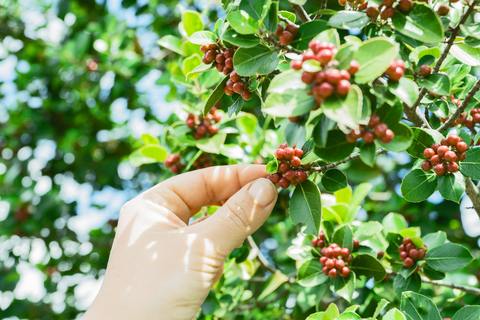
Once the beans are picked, however, they are processed and sun dried the same day. Then they are rested for 8 weeks in a special controlled storage room to guarantee the highest quality. Next, they are hand-sorted. Machines for sorting coffee beans move more quickly, but are not nearly as accurate as the human eye when it comes to noticing defects the beans may possess- cracks, chips or damage that insects may have caused to the beans. Once they are sorted, they are checked once again by a senior sorter and then by the manager of the sorting plant. The Jamaica Blue Mountain beans are then given a light roasting that compliments Jamaica Blue Mountain coffee’s legendary taste.
What is the best Jamaica Blue Mountain Coffee?
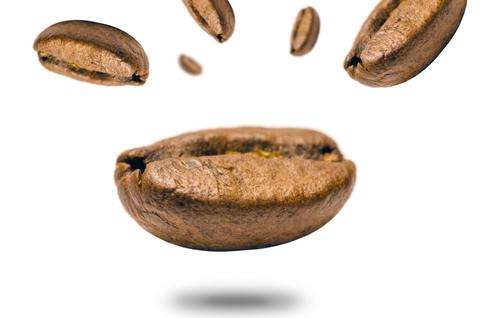
But the stipulations for this coffee aren’t done yet: Jamaica Blue Mountain Coffee is then further sorted into 3 categories, all based on the quality of the beans.
Blue Mountain Number 1: The cream of the crop. The biggest beans with the least amount of defects. 250 grams, or 8.8 ounces, of No. 1 can have a price upwards of $100 per pound.
Blue Mountain Numbers 2 and 3 are the other two levels of quality available. While also superb quality, these varieties carry more defects that the superior quality Number 1 variety.
There are also the additional Blue Mountain Peaberry beans which are oblong and smaller than other beans.
If and only if the beans meet all of the aforementioned standards and factors can they be stamped as certified and official Jamaica Blue Mountain Coffee. Knock-off Jamaica Blue Mountain does exist, but Jamaica, Japan and other nations have laws and hurdles in place to insure that only the authentic and certified beans hit the market for retail.
The Champagne of Coffee: How Does it Taste?
For all the rigid rules and techniques that come into play with the production of these beans, it is easy to see the comparison between Jamaica Blue Mountain coffee and Champagne. Both Jamaica Blue Mountain coffee and a fine Champagne are renowned for their quality and taste, both legally recognized as such only if they fit certain parameters of geography and growing techniques.
But, the most important factor for many coffee enthusiasts is, “how does it taste?” When it comes to the taste and flavor of Jamaica Blue Mountain coffee, the quality is of the highest caliber. Jamaica Blue Mountain Coffee is renowned for its rich, creamy-smooth and sweet flavor. It possesses some other vivacious notes as well, like nutty, spicy and floral notes. The aroma is certainly a nod to its tropical origins, also being floral and sweet. Many fans of Jamaica Blue Mountain coffee regard the beans as not requiring any additional accoutrements, be it sugar, cream or syrup.
Why is Jamaica Blue Mountain coffee so expensive?
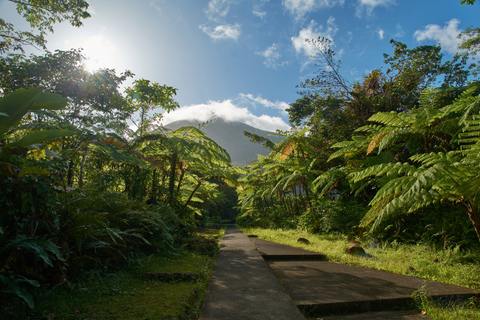
So, why is Jamaica Blue Mountain coffee so expensive? Like all things, it is governed by supply and demand, but let’s not oversimplify. To recap, 4 Reasons:
#1: Cultivated on a specific mountain range in Jamaica, limiting the amount produced.
#2: Must be handpicked, hand sorted, and requires a longer maturation period. After harvesting, another 8 weeks must pass before hand-sorting. This production process is labor intensive and time-consuming- therefore, expensive.
#3: Most of the beans are purchased by the Japanese market. Thus, even after an expensive production process, the end supply for the rest of the world is relatively low.
#4: The delectable flavor of the coffee necessarily makes for high demand.
The upside: The lower amount of Jamaica Blue Mountain produced does result in extra care and quality in each individual bean. With Jamaica Blue Mountain Coffee, while you may be paying a lot, you are certainly guaranteeing coffee that is of the highest quality.. If you are lucky enough to enjoy this great masterpiece of coffee, you will see firsthand why the price these beans fetch is a handsome one!
The particulars and rigors of producing Jamaica Blue Mountain combined with the delectable and one of a kind flavor of the coffee necessarily makes for a high end product- one that is rare and arduously produced.
The lower amount of Jamaica Blue Mountain produced does mean the more care and attention and quality is insured with each individual bean. With Jamaica Blue Mountain Coffee, while you may be paying a lot, you are certainly guaranteeing coffee that is of the highest quality. If you are lucky enough to enjoy this great masterpiece of coffee, you will see firsthand why the price these beans fetch is a handsome one!
Sources:
- “7 Reasons Why Jamaican Blue Mountain Coffee Is so Expensive.” Henry’s House of Coffee, 6 Feb. 2019, henryshouseofcoffee.com/2015/11/03/jamaicanbluemountain/.
- Chase, Gordon. “Jamaican Blue Mountain Coffee Guide: All You Need To Know.” 2Caffeinated, 26 Feb. 2019, 2caffeinated.com/a-jamaican-blue-mountain-coffee-guide-all-you-need-to-know/.
- “Jamaican Blue Mountain Coffee.” Wikipedia, Wikimedia Foundation, 22 June 2019, en.wikipedia.org/wiki/Jamaican_Blue_Mountain_Coffee.
- Lancashire, Robert John. “The Finest in the World!” Jamaican Coffee, wwwchem.uwimona.edu.jm/lectures/coffee.html.
